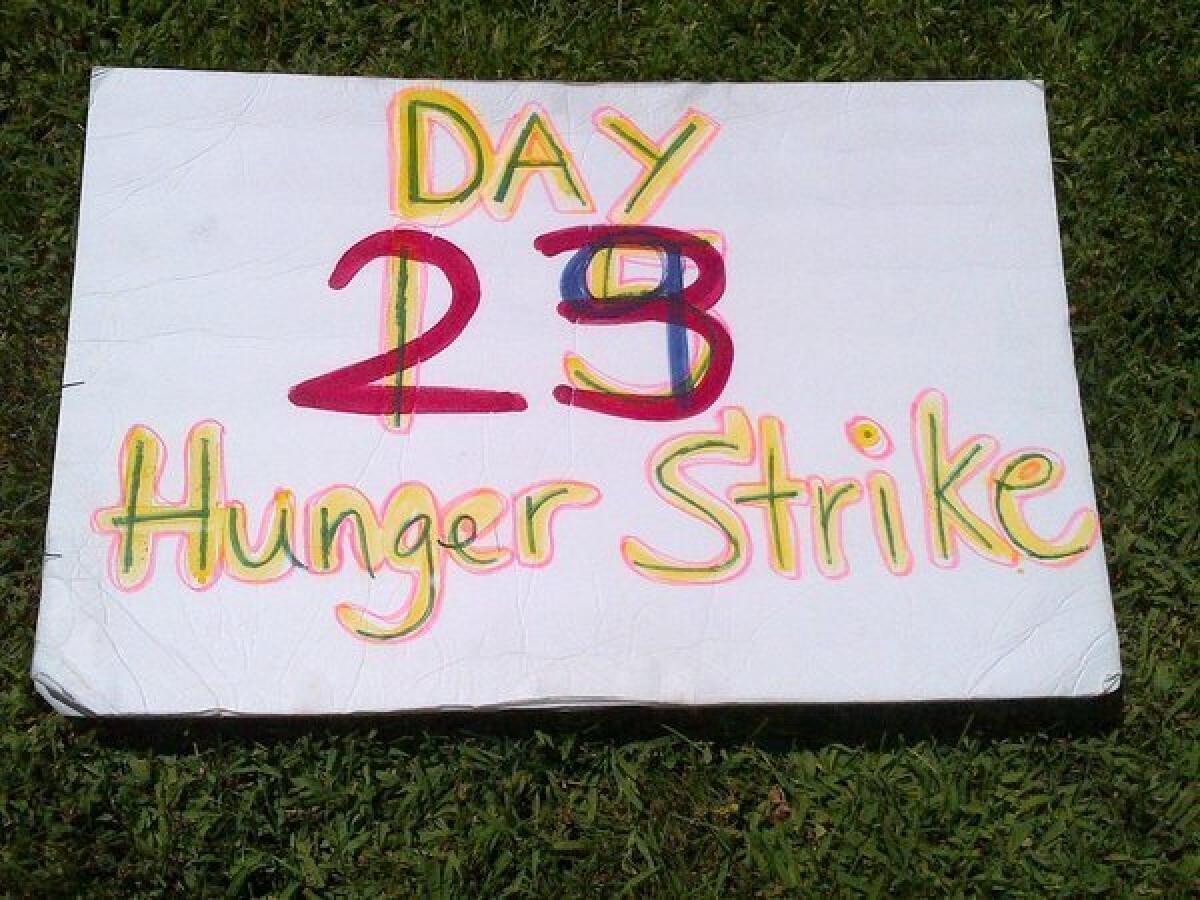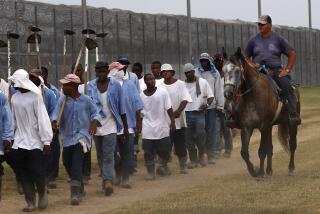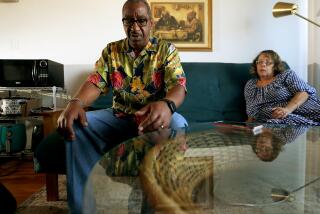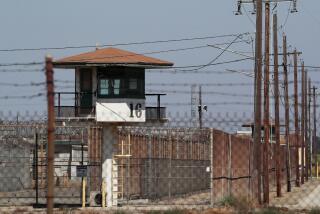Prison hunger strike: Medical chief says order allows key decisions

This post has been corrected. See the note below for details.
SACRAMENTO — California’s top prison doctor defends the court order to allow the force feeding of inmates on a 44-day hunger strike, saying that it gives physicians flexibility to make life-or-death decisions under difficult circumstances.
However, a medical expert on prison hunger strikes says allowing prison doctors to disregard patient directives and revive and even feed protesters against their will is “medically inappropriate.”
The order issued by U.S. District Judge Thelton Henderson on Monday allows physicians to decide if an inmate is sincere in refusing medical care. The order invalidates all “do not resuscitate” orders that hunger strikers signed just before or during the protest that began July 8
The Corrections Department on Tuesday said 45 inmates have refused food since July 8, and 49 others have refused meals for a shorter period.
Dr. Steven Tharratt, chief medical officer for prisons in California, on Tuesday explained the need for doctors to be free to judge for themselves whether an inmate who has previously refused care wants to be saved.
“When you have competing imperatives, and time is short, don’t do the irreversible thing,” he said. If after being revived an inmate still wants to refuse care, Tharratt said, “we can deal with that down the path.”
To give prison doctors as much flexibility as possible, Tharratt said the federal receiver in Sacramento is providing no written policies on when and how to make those decisions —- just a copy of the broad, four-paragraph court order.
State prisons officials have alleged that some of the hunger strikers may have been coerced by other inmates to participate in the protest.
Tharratt said few of the remaining prison hunger strikers actually have signed do not resuscitate orders. Most have simply refused medical care, including refusing to accept cans of Ensure, the liquid supplement prison doctors are offering hunger strikers.
In most cases, involuntary intervention is likely to involve providing nutrients through an intravenous tube to an unconscious patient, he said.
Critics of the involuntary feeding order say prison medical officials, who report to the court-appointed receiver, have taken the side of the California corrections department, including adopting the prison system’s position hunger strikers may not drink juice if they want to be considered part of the protest.
“Custody becomes obsessed with asserting total control,” said Dr. Scott Allen, a former Rhode Island prison medical director now at UC Riverside School of Medicine. Allen, a published author on medical ethics during prison protests, said it is a “common mistake” for doctors to let prison officials decide such things as what a hunger striker may consume.
Jules Lobel, president of the Center for Constitutional Rights and a lawyer for California hunger strikers, accused the medical system of “deliberate indifference to the medical needs of prisoners.”
The state’s court-appointed prison medical director, Clark Kelso, in an Aug. 16 email to Lobel said it is up to prison doctors, not inmates, to decide what sort of nutrition to offer hunger strikers.
“Inmate patients do not have the same freedom of choice to control their medical care as non-inmates,” Kelso wrote in an Aug. 16 email to Lobel, provided to The Times under a public records request.
Medical studies on hunger strikes show that individuals who have ingested only water begin to show signs of eye degeneration between 35 and 42 days, as the body begins to consume itself. Tharratt said no California inmate has yet shown those symptoms
For the record, 4:44 p.m., Aug. 20: A previous version of this post said that 46 inmates had refused food since the start of the protest, and 91 others had refused meals for a shorter period.
ALSO:
Prisoner rights lawyer says force-feeding unlawful
Calipatria inmates resume eating, get cable, canteen foods
On Twitter: @paigestjohn
paige.stjohn@latimes.com
More to Read
Get the L.A. Times Politics newsletter
Deeply reported insights into legislation, politics and policy from Sacramento, Washington and beyond. In your inbox three times per week.
You may occasionally receive promotional content from the Los Angeles Times.











